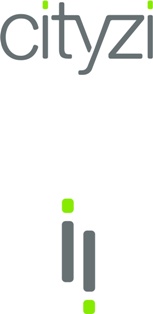Association Française du Sans Contact Mobile (AFSCM)
Weâre Updating Our Profiles Section
Stay tuned for all new and updated exclusive profiles on companies and organizations involved in the ecosystem.

The French have been doing a lot of deep thinking about how NFC should work when itâs rolled out.
Led by the countryâs three major mobile operators, theyâve set up a number of working groups to discuss--often in great detail--what should happen when, for example, a subscriber loses his NFC mobile phone with an e-wallet full of contactless services. Or how he should authenticate himself for higher-value contactless mobile purchases.
And the linchpin of this NFC-by-committee system is the Association Française du Sans Contact Mobile, or AFSCM. The group is charged with making sure any of Franceâs nearly 60 million mobile subscribers will be able to use their NFC phones with any mobile operator or service provider offering mobile contactless services anywhere in the country.
The group, formed in April 2008 by France Telecom-Orange, SFR, and Bouygues Telecom is setting specifications for interoperability of NFC handsets, NFC-enabled SIM cards, NFC tags and the technical interfaces operators, service providers and trusted service managers will use to communicate.
 The group is also issuing guidelines on how mobile operators, banks and other players will promote NFC, including introducing its own acceptance mark for tags in smart posters or other touch points. The telcos have let some key service providers and vendors into the group.
The group is also issuing guidelines on how mobile operators, banks and other players will promote NFC, including introducing its own acceptance mark for tags in smart posters or other touch points. The telcos have let some key service providers and vendors into the group.
On top of this foundation, the mobile operators hope specifications from other working groups theyâve formed with French banks (LâAssociation EuropĂ©enne Payez Mobile), transport operators (Ulysse) and merchants and related organizations (Ergosum) will further define how consumers do mobile payment, transport ticketing, loyalty programs and use other services.
Without an interoperable NFC infrastructure among mobile operators, service providers and vendorsâdubbed âcoopetitionâ by some of the operatorsâNFC wonât fly, say the backers. And they hope to spread the French way throughout Europe and to other countries that launch NFC. The first test of specifications from the AFSCM and other French working groups will be on display during a demonstration project planned for spring 2010 in the French Mediterranean city of Nice, what organizers are calling the âNFC City.â
It seems unlikely telcos, banks and other service providers elsewhere will gather around the same table and agree to ground rules before they launch NFC with the same enthusiasm as the French. And it remains to be seen if the French committee system will lead to nationwide rollouts.












